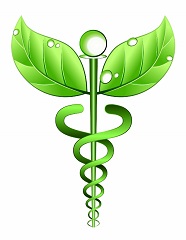[sdf_hero][sdf_col width=”1/1″][sdf_text_block]Herbs vs. Drugs: Get the Facts About Medicine
One appears safe but is clinically unproven. The other is closely regulated not always safe. Get as many facts about medicine as you can before you decide between herbs vs. drugs.
By Lynn Keiley & Stephanie Bloyd
December 2006/January 2007
inShare[/sdf_text_block]The Sustainable Herbs Project is a new project by the producers of the award-winning documentary, Nu…
Medicines, both herbal and pharmaceutical, are big business. These days, Americans spend $200 billion per year on prescription drugs and $20 billion on herbs and other dietary supplements. When choosing the best remedy or preventive medicine, most of us simply want the safest, most effective option available, whether it’s food, herbs or a pharmaceutical drug. But the question of using herbs vs. drugs isn’t moot. The facts about medicine aside, people often turn to supplements because they’re perceived as more natural than drugs, and can have fewer side effects and generally cost less.
For instance, the popular drug Celebrex, used to treat arthritis, costs more than $4 per day, while ginger supplements, a popular herbal remedy for inflammation, cost about $0.38 per day. The high cost of prescription drugs can cause many to compromise: For example, in 2001 alone, nearly one in four senior citizens reported skipping doses or leaving prescriptions unfilled.
Recent prescription drug recalls, such as the 2004 Vioxx withdrawal, also have cast a dubious light on both the U.S. Food and Drug Administration (FDA) and the pharmaceutical industry, prompting more people to turn to nutritional supplements. A September 2006 study on drug safety conducted by the Institute of Medicine, part of the National Academy of Sciences, found that “The credibility of the FDA, the [pharmaceutical] industry, the academic research enterprise, and health care providers has become seriously diminished in recent years. Of particular concern are the common but inaccurate perceptions that the FDA approval represents a guarantee of safety, that approval is based on high degrees of clarity and certainty about a drug’s risks and benefits.”
Though herbal supplements are an attractive alternative to pharmaceuticals, the former actually receives less governmental regulation, so it’s important to be aware of how both industries are regulated, and to do your homework when deciding which treatment is right for you.
[sdf_headline title_heading=”h2″] Regulation of Drugs
[/sdf_headline] The FDA is responsible for monitoring the safety and efficacy of pharmaceutical products. While most people assume the agency itself closely tests new drugs, this is not the case. Pharmaceutical companies must provide the FDA with research from clinical trials to prove their new drugs are safe for the market — a practice that unfortunately leaves room for bias, according to Marcia Angell, M.D., former editor in chief of The New England Journal of Medicine.
“Can we believe those trials? After all, that crucial last stage of research and development is usually sponsored by the company that makes the drug, even if the early research was done elsewhere. Is there some way companies can rig clinical trials to make their drugs look better than they are? Unfortunately, the answer is yes. Trials can be rigged in a dozen ways, and it happens all the time,” Angell writes in her book The Truth About the Drug Companies. Furthermore, FDA approval committees often include members with ties to pharmaceutical companies. In fact, the 2006 Institute of Medicine’s study recommended that the FDA should “establish a requirement that a substantial majority of the members of each advisory committee be free of significant financial involvement with companies whose interests may be affected by the committee’s deliberations.”
[/sdf_col][/sdf_hero]
One appears safe but is clinically unproven. The other is closely regulated not always safe. Get as many facts about medicine as you can before you decide between herbs vs. drugs.
By Lynn Keiley & Stephanie Bloyd
December 2006/January 2007
inShare[/sdf_text_block]The Sustainable Herbs Project is a new project by the producers of the award-winning documentary, Nu…
Medicines, both herbal and pharmaceutical, are big business. These days, Americans spend $200 billion per year on prescription drugs and $20 billion on herbs and other dietary supplements. When choosing the best remedy or preventive medicine, most of us simply want the safest, most effective option available, whether it’s food, herbs or a pharmaceutical drug. But the question of using herbs vs. drugs isn’t moot. The facts about medicine aside, people often turn to supplements because they’re perceived as more natural than drugs, and can have fewer side effects and generally cost less.
For instance, the popular drug Celebrex, used to treat arthritis, costs more than $4 per day, while ginger supplements, a popular herbal remedy for inflammation, cost about $0.38 per day. The high cost of prescription drugs can cause many to compromise: For example, in 2001 alone, nearly one in four senior citizens reported skipping doses or leaving prescriptions unfilled.
Recent prescription drug recalls, such as the 2004 Vioxx withdrawal, also have cast a dubious light on both the U.S. Food and Drug Administration (FDA) and the pharmaceutical industry, prompting more people to turn to nutritional supplements. A September 2006 study on drug safety conducted by the Institute of Medicine, part of the National Academy of Sciences, found that “The credibility of the FDA, the [pharmaceutical] industry, the academic research enterprise, and health care providers has become seriously diminished in recent years. Of particular concern are the common but inaccurate perceptions that the FDA approval represents a guarantee of safety, that approval is based on high degrees of clarity and certainty about a drug’s risks and benefits.”
Though herbal supplements are an attractive alternative to pharmaceuticals, the former actually receives less governmental regulation, so it’s important to be aware of how both industries are regulated, and to do your homework when deciding which treatment is right for you.
[sdf_headline title_heading=”h2″] Regulation of Drugs
[/sdf_headline] The FDA is responsible for monitoring the safety and efficacy of pharmaceutical products. While most people assume the agency itself closely tests new drugs, this is not the case. Pharmaceutical companies must provide the FDA with research from clinical trials to prove their new drugs are safe for the market — a practice that unfortunately leaves room for bias, according to Marcia Angell, M.D., former editor in chief of The New England Journal of Medicine.
“Can we believe those trials? After all, that crucial last stage of research and development is usually sponsored by the company that makes the drug, even if the early research was done elsewhere. Is there some way companies can rig clinical trials to make their drugs look better than they are? Unfortunately, the answer is yes. Trials can be rigged in a dozen ways, and it happens all the time,” Angell writes in her book The Truth About the Drug Companies. Furthermore, FDA approval committees often include members with ties to pharmaceutical companies. In fact, the 2006 Institute of Medicine’s study recommended that the FDA should “establish a requirement that a substantial majority of the members of each advisory committee be free of significant financial involvement with companies whose interests may be affected by the committee’s deliberations.”
[/sdf_col][/sdf_hero]


